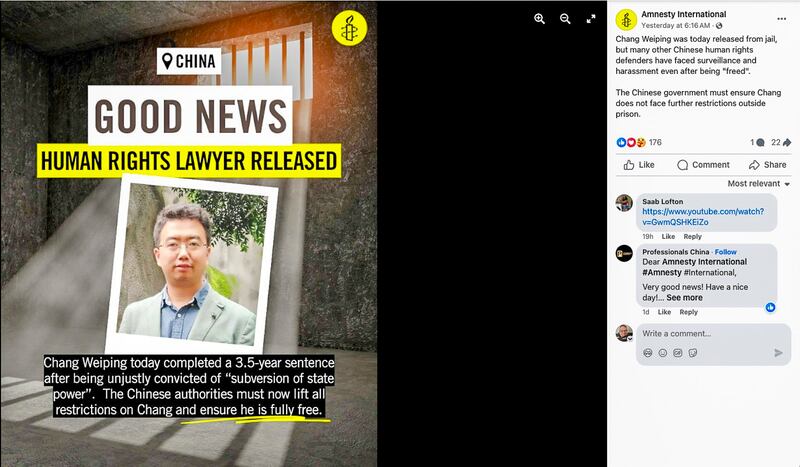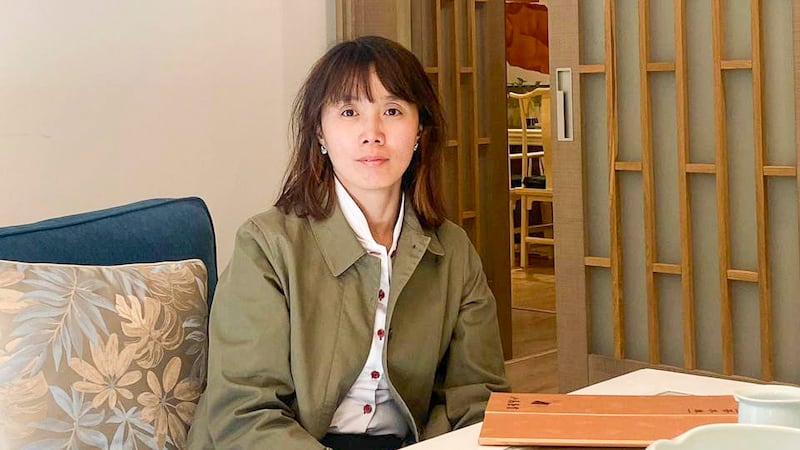Chinese authorities have released human rights attorney Chang Weiping, sending him to live in the southern island province of Hainan under a travel ban following the completion of his 3 1/2-year jail term for "subversion," his U.S.-based wife said on Tuesday.
Chang was released from Weinan Prison near his birthplace in the northern province of Shaanxi on July 8, his wife Chen Zijuan told RFA Mandarin in an interview.
She said prison officers took him to Haikou, the provincial capital of Hainan, where his household registration, or “hukou,” is, but a place he has scant ties to now.
"Our family doesn't have any property or any relatives there," Chen said. "According to my understanding of the law, someone who has been released from prison ought to be free."
Chang was arrested after attending a gathering of dissidents in the southeastern city of Xiamen in December 2019, and sentenced to three-and-a-half years for "incitement to subvert state power."
The sentence came eight weeks after authorities in Shandong province handed down a 14-year sentence to prominent dissident Xu Zhiyong and a 12-year term to rights lawyer Ding Jiaxi, who also attended the Xiamen gathering, on the same charges, prompting an international outcry.

Subversion charges are frequently used by the ruling Chinese Communist Party to target critics of the regime.
Before his trial, Chang was held for a long time under " residential surveillance at a designated location," which rights groups say is associated with a higher risk of torture and mistreatment in detention.
Lawyers representing Chang, Xu and Ding have all reported that they were tortured during their time in pretrial detention.
Using the system
China's " hukou" registration system dates back to the Mao era of collective farming and a planned economy, enabling each household to access services only from its place of registration.
The system was reformed in 2014 to supposedly rely on a person's place of residence and job rather than their birthplace, although major cities remain out of reach for the majority of migrants.

But the system is also used by law enforcement agencies to insist that dissidents, rights lawyers and other people viewed as troublemakers are kept away from their old lives, and out of China's biggest cities.
Chen, who fled China with the couple's young son in 2022 after Chang's sentencing, said the local judicial affairs department had also slapped a two-year international travel ban on her husband.
However, he has received a visit from his father, and is currently permitted to go out to shop and eat, she said.
Chang's release comes on the ninth anniversary of the mass arrests of human rights lawyers in China, and the treatment of his former colleagues doesn't augur well for his future if he stays in China, Chen said.
"None of the lawyers targeted by the Chinese Communist Party crackdown have been able to live a normal life since their release from prison," Chen said. "[Chang Weiping] will also lose his license to practice as a lawyer, so he won't be able to work in China as a lawyer."
"He's going to find it hard to get by," she said, adding that she hopes Chang will eventually be allowed to join her and the couple's son in the United States.
Translated by Luisetta Mudie. Edited by Malcolm Foster.
